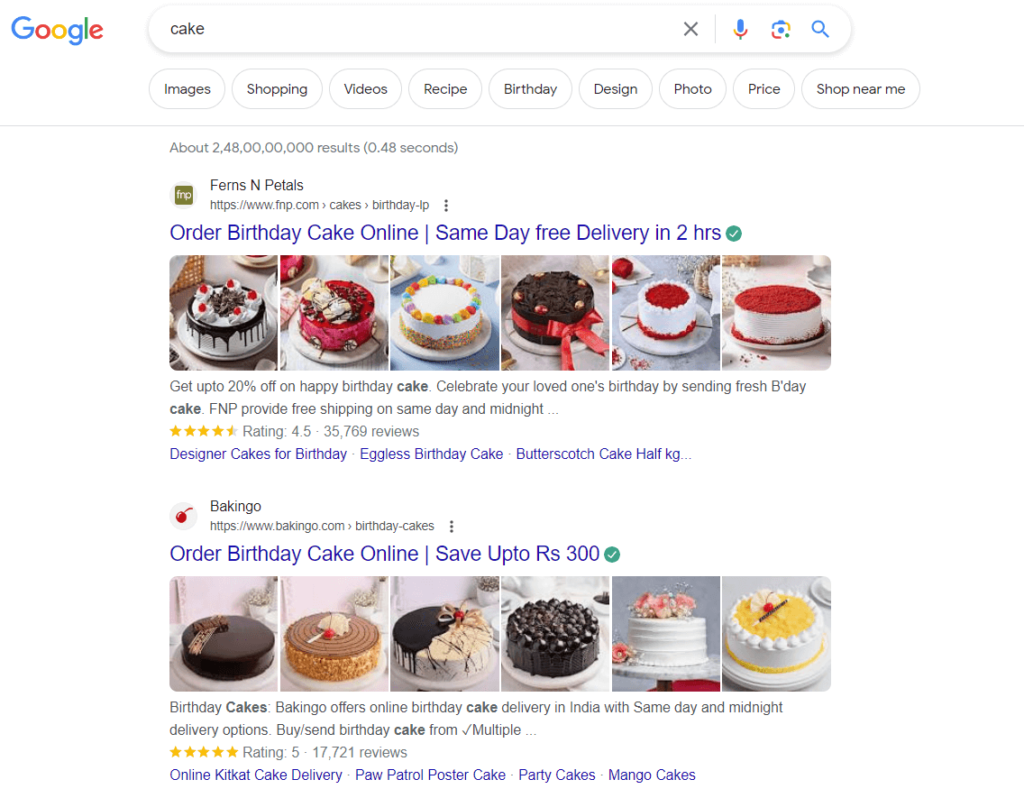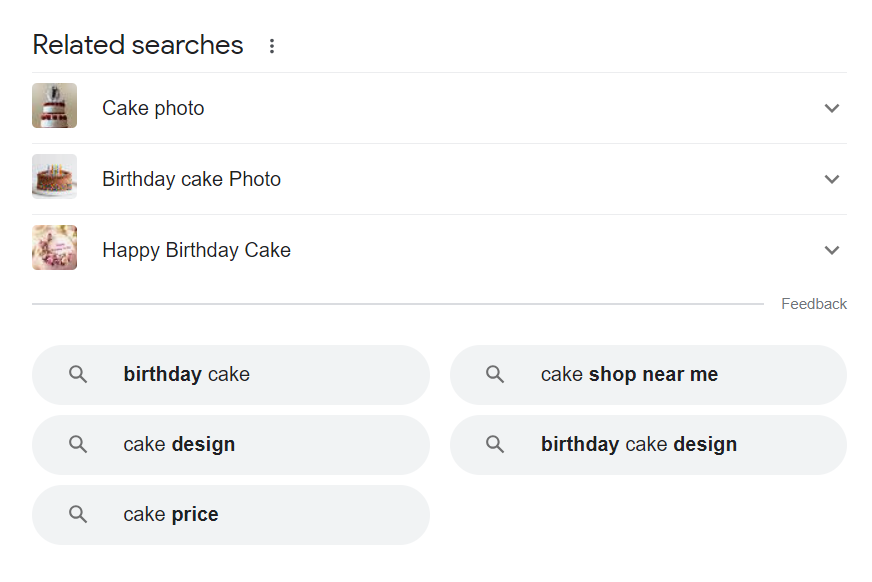Keywords are the foundation of a good content and SEO strategy. If you also ask yourself How to Choose the Right Keywords for Content Writing, this blog is a great start for you. Search engines roll out algorithm updates frequently. However, one feature that aims to optimise websites for search has been fairly consistent and that is, drumroll please: KEYWORD RESEARCH. Let’s dive into this blog and learn to choose the relevant keywords for content writing. Keep scrolling & reading!
What is Keyword Research?
Keyword research is the practice of finding and analysing search phrases that people type into search engines with an aim to utilise that information for a specific purpose. It is often done for search engine optimisation (SEO) or general marketing. Keyword research can unveil target queries, how common they are, the difficulty of ranking for these searches, and more.
Marketers expect the content marketing industry’s revenue to exceed $135 billion by 2026.
What is the importance of Keyword Research?
When you have to write and craft content for your website, choosing the right keywords is an essential step. Keyword research is performed to find out which keywords are best to target and relevant for the audience. They help provide useful information about the searches that your target audience is making on search engines. You can leverage these insights about the actual search phrases to create content strategies. People use phrases to find answers to their queries online. If your content appears in front of your target audience when they do searches, you have a chance to get more traffic. Additionally, we should produce content around what people want to learn. Let your audience come to you.
Did you know “How-to” articles bring 1.5x organic web traffic than other content types?
What are the benefits of Keyword research?
Keywords are like breadcrumbs that lead you to your target audience. By identifying the right keywords, you make sure that your content appears in search engine results when people look for information related to your niche. Here are a few benefits of keyword research:
Increased Traffic
The more relevant keywords you choose for the content you post, the higher you will rank in search engine results and the more visitors you will receive.
Market Research Trend
Effective keyword research will give you information about current marketing trends. It will help you focus on creating content on relevant and trending topics and search phrases that your audience is using.
Getting Prospective Customers
If your business offers information that other business professionals need, you can fulfil their needs and direct them to a call to action (CTA) that will take them through the buyer’s journey from the awareness stage to the purchasing stage.
You may address the issues that the majority of your audience is interested in by researching keywords for their popularity, search volume, and general purpose.
You can also read: Will AI Replace Copywriters? How AI is Changing the Content Game?
What are the basics of Keyword Research?
There are three key aspects to conducting keyword research:
Relevancy
Search engines such as Google, Yahoo, and Bing rank content on the basis of relevancy. Search engines’ algorithm looks at other pages that users are clicking on for that query when deciding which pages to show in search results. For instance, if a user types in [Cake], Google must determine if they are looking for information on what a cupcake is, how to make one, or where to buy a cake.

Search Volume
Monthly search volume is referred to as the total number of times the keyword is searched each month across all audiences. It is a useful statistic to begin with if people are looking for that keyword but it shouldn’t be the primary or only measure of value. It is great if you rank on the first page for a specific keyword, however, if no one searches for the same, it will not bring traction to your website.
Credibility
Google considers sources that have some credibility. This means that you must establish yourself as a credible and authoritative source by improving your website with educational, informative and entertaining content to get social signals and backlinks. Unless your content is extraordinary, you have less chance of ranking if you are not regarded as an authority in the field or if a keyword’s SERPs are stacked with credible sites you can’t compete with (like Forbes).
Keep in mind these important basics of keyword research. These will help you to choose the right keyword for content marketing to rank high and gain traffic for your website.
Read more: 10 Important SEO Metrics To Track Performance in 2023
How to Conduct Keyword Research for your Content Writing plan?
We have outlined a keyword research procedure which you can use to get a list of phrases you should be aiming for. By doing this, you will able to create and implement a solid keyword strategy that promotes your website for the search phrases that matter the most to you.
#1 Prepare a List of Relevant Topics
To begin with, brainstorm certain topics that you want to rank for on the search engines. Create 6-10 topics that you consider important to your business. Consider these topics to help you choose some specific keywords. Think about your buyer persona and what they are searching for. If you are a company like Markeeters, you might have topics like:
- Social media marketing (SMM) [60.5K]
- Search engine optimization (SEO) [22.2K]
- Marketing analytics [4.4K]
- Brand marketer [9.9K]
- Email Marketing [27.1K]
The numbers in the bracket show their monthly search volume. This statistic helps understand how important these topics are to your audience and how many subtopics you would need to cover in order to rank well for specific keywords.
#2 Add Keywords to the selected Topics
When the relevant list of topics is prepared, it is time to choose some keywords that fit within the topic list. These are keywords you think are essential for ranking on search engine results pages (SERPs) as your target audience might be searching for them. Also, Google is encrypting more and more keywords every day. Pro tip: Find out which keywords are already bringing traffic to your website. You will need Google Analytics to do this. Dig deeper into the traffic sources for your website and search through the organic search traffic. Also, speak with your sales and customer service teams to inquire about the keywords or phrases their prospects and customers use. This technique is also helpful.
#3 Understand User Intent & its Influence on Keyword Research + Analysis
User intent is a key element that determines how well you do on search engines like Google. It is important that your website solves the pain points of the searchers rather than simply carrying the keyword they used. It is a good practice to type the keyword directly into a search engine to check what kinds of results appear to confirm the intent of the users. Assure Google that the content you want to produce for the keyword is closely connected to it. This certainly helps in choosing the right keywords for content writing.
#4 Research-related Keywords
If you’re having trouble coming up with more keywords that people could use to search on certain topics, look at the related search keywords that show up when you enter a keyword into Google. You will get some recommendations when you type into Google and scroll to the bottom of the results. These keywords might provide you suggestions for additional keywords you might want to think about. For instance, when we Google the keyword “cake” we get suggestions like cake design, cake price, birthday cake, and birthday cake design.

#5 Make the most of Keyword Research tools
Based on the topics created, Keywrod Research and SEO tools can assist you in developing more keyword suggestions using exact match and phrase match keywords. Some of the popular keyword tools are:
- SEMrush
- Ahrefs
- Ubersuggest
- Free Keyword Research Tool
- Google Keyword Planner
- Moz
- KeywordTool.io
This procedure aims to help you choose the right keywords for content writing for your website and gain traction. Speak with your audience by learning their slang and search query terms to make sure you are solving their problems. Make sure to be solution-oriented while writing content for your website.
Related Article: Top 10 Free Keyword Research Tools For SEO in 2023
How to Choose the Right Keywords for Content Writing?
It is time to filter the potential keywords based on those that would work best for your plan once you have an idea of the keywords you want to rank for. This is how:

Leverage Google Keyword Planner to Simply your Keyword List
Use Google Keyword Planner to estimate the search volume and traffic for the keywords you have listed. After that, use Google Trends to fill in the gaps using the insights you gained from Keyword Planner. Leverage the Keyword Planner to highlight any phrases on your list that have abnormally low or excessively high search volumes. Examine their trend history and forecasts in Google Trends before you remove anything. For example, you can check if certain low-volume keywords are something you should invest in now and profit from later. Use Google Trends to identify the phrases that are rising and focus on those keywords.
Prioritise Keywords that have a high Chance of Ranking
Prioritise keywords for which you have a probability of ranking based on the authority of your website. Big companies frequently target keywords with high search traffic, and since their brands are already popular, Google often rewards them with authority across a wide range of topics. You can also think about using less competitive keywords. If no one else is competing for the top spot for a keyword, it can be yours by default if there aren’t currently numerous articles competing for it. This is one of the most suitable ways to choose the right keywords for content writing.
Find the Monthly Search Volume (MSV) for Selected Keywords
Analysing MSV can help you produce content that is focused on what readers want to learn. The amount of time a keyword or search query is typed into search engines each month is known as monthly search volume (MSV). Free tools like Google Trends and Soovle can assist in identifying the most popular keywords and phrases within comparable keyword groups. MSV will help you identify the right keywords for your content-writing goals.
Consider SERP Factors while Selecting Keywords
When executed correctly, Google will highlight a number of SERP feature snippets. Search for the keywords of your choice and see what the top result looks like to learn more about them. We will briefly describe the different kinds of SERP highlighted snippets:
Paragraph Snippets:

A short passage of text called featured snippets or paragraph snippets is displayed at the top of Google search results to provide a swift response to popular search queries. You can obtain your placement by comprehending the search intent and offering brief responses or solutions.
Image Packs:

Search results that show up naturally and are presented as a horizontal row of photos are known as image packs. You should create an image-heavy post if there is an image pack in order to be included in it.
Video Snippets:

In place of highlighted text snippets, Google will show short videos at the top of search query pages. If you upload a video to both YouTube and your website and tag it with the relevant keywords, you may be able to get this placement.
List Snippets:

List snippets, also known as listicles, are excerpts created for blogs that outline the steps to do a task from beginning to end. These are mostly “How-to” searches. It is possible to get this placement by writing blogs with clear and simple layouts and guidelines.
Look for Long-Tail Keywords & Head Terms
Long-tail keywords are longer phrases that often comprise three or more words. Head terms are normally just one to three words long, shorter, and more generic than other keyword phrases. Make sure your keyword strategy is well-balanced with a blend of long-tail keywords and head terms. Head terms are often searched for more than long-tail keywords. This makes it considerably more competitive and challenging to rank. Long-tail keywords will allow you to achieve some quick wins, but you should also make an effort to wear down more challenging head phrases.
Analyse the Keyword Rankings of your Competitors
It is important to remember that a keyword may not be significant to you just because it is important to your competitor. However, it is a wonderful idea to analyse which keywords your competitors are trying to rank for and reevaluate your list of keywords. It is sensible to focus on ranking for specific keywords if your competition is already doing so for the topics that are on your list. Although, don’t neglect the topics your competitors don’t appear to be concerned about. This is a wonderful chance to gain market share on significant keywords as well.
This is how you choose the right keywords for content writing for your website. These important guidelines will help you explore the right keywords to rank high on search engine results pages (SERPs). The higher your rank, the more prominent you get and achieve traction. Keep in mind to be solution-oriented while writing content on your website. The more answers and solutions you provide to people’s problems, the more readers will read your content.
Conclusion
Now you have a complete guide on how to choose the right keywords for content writing. Make sure to review these keywords every quarter. Some businesses like to evaluate their keywords more often. As you become more credible on SERPs, you will be able to add more and more keywords to your keyword bucket while also retaining your current position and expanding in new areas. The process of choosing the right keywords for content writing is simple. Simply searching for terms where:
- High traffic potential exists
- Content that is relevant to search intent can be produced
- You have a chance to rank
- The high business potential exists
Join Markeeters
Hire an Expert Content Marketer
Captivating Content that converts
FAQs
How to you decide which keywords to target in your content?
– Consider things from the perspective of your customers. First identify and understand your target audience.
– Analyze the competitors’ content.
– Identify the long-tail keywords.
– Check keyword metrics.
– Monitor the analytics and make changes.
What is a good SEO keyword?
Long tail keywords are phrases that searches employ in Google and other search engines that are often four words or longer. In addition, they often have less difficulties with keywords than “head terms” of one to three words. Therefore, long tails are typically the greatest keywords to start with for those who are new to SEO.





